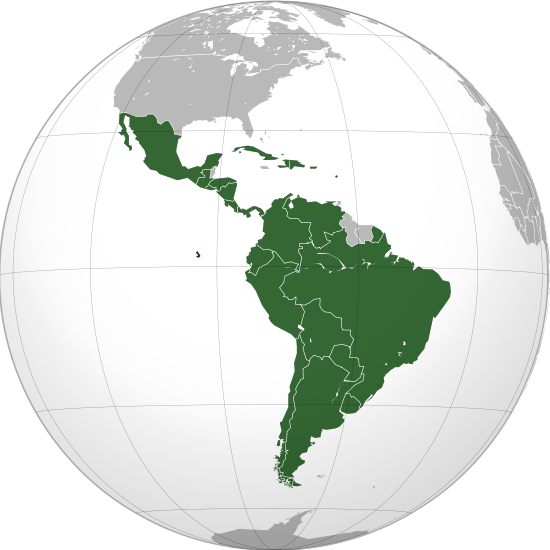

Thousands of people took to the streets in Bogota and in more than 100 other municipalities around Colombia on March 17. It was the largest mobilization in the country in the last 15 years.
The people responded to a call from the Coordination of Social Organizations, made up of more than 40 organizations, including the Central Union of Workers of Colombia and the General Confederation of Workers. The breadth of the represented sectors is a giant step toward achieving the group’s ultimate goal: real peace with social justice.
The entire left — the different federations and trade unions, youth and students, the peasants, the Afro-Colombian people, Indigenous people, women, the LGBTQ community, all representing the people who are dissatisfied with the neoliberal policies of the Juan Manuel Santos government — came out to publicly demonstrate.
It was really a demonstration of united people’s power that confronts government actions that are undermining the welfare of the masses.
In Havana, Cuba, the FARC-EP (the Revolutionary Armed Forces of Colombia — People’s Army) and the government of Colombia are laying the foundation for a peace agreement. On the other hand, the Santos regime has been unraveling the threads in Colombia, where these accords will be consolidated. And the people have responded by demanding the inclusion of issues that had been brought to the negotiating table but which the government rejected. These include the call for a new constitutional assembly to re-establish the country on a more just foundation.
The following excerpts from the letter to President Santos, about why the national strike was called for March 17, illustrate the critical situation in the country:
“After the failure of the negotiations on the Legal Minimum Wage, the absurd and arbitrary sale of ISAGEN [the state-owned power generation company] … the announcement of the wrongful Tax Reform for the popular sectors, … your non-compliance toward pensioners and workers over an agreement signed by you to reduce health contributions from 12 to 4 percent; … [since we have] confirmed [the] non-compliances with agreements signed with Agro-Livestock Dignity, Agrarian Summit, as well as with the truckers’ crusade, taxi drivers and other sectors; [and] in addition to the above, the noxious legislative agenda, the high degree of impoverishment of our farmers and the majority of the population, the high cost of the basic family food basket and public transport, unemployment, sub-employment of the informal sector, unpayable foreign debt, all of them a product of a regressive neoliberal economic model; we have decided to convene, organize and carry out a NATIONAL DAY OF PROTEST which will be a NATIONAL STRIKE.”
Then they included the 15 key demands, among which are the development of a structural program with emergency measures for the people in the Guajira; compliance with the agreements signed between the government and the various organizations; raising wages; stopping the privatization of public enterprises; overhauling the Free Trade Agreements; stopping the privatization of health and education; respecting labor rights; guaranteeing human rights; and stopping the criminalization of protest, among others.
The Unitary National Command — the steering committee of the mobilization — has highlighted the importance of everyone’s commitment to put pressure on the government to name a Negotiating Commission to attend to these demands.
In Argentina, 250,000 people marched on March 24 at the Plaza de Mayo on the Day of Remembrance for Truth and Justice commemorating the 40th anniversary of the civilian-military coup of 1976. The coup installed a bloody dictatorship that killed and exiled thousands and disappeared 30,000 Argentinians.
The march not only commemorated the cruelty of 40 years ago, but protested against the neoliberal and pro-U.S. policy of the current government of Mauricio Macri.
The leader of the Grandmothers of the Plaza de Mayo, Estela de Carlotto, summarized the position of the march against Macri, saying, “40 years after the genocidal coup, we feel again called to defend democracy. … The change of government has brought the daily violation of rights.” (Telesurtv.net)
At the very same time, U.S. President Barack Obama was visiting the capital Buenos Aires and commemorated the anniversary with the Argentine President in a separate activity where there was no presence of human rights organizations, including the Grandmothers of the Plaza de Mayo who refused the government’s invitation.
It must be mentioned that Obama has never apologized for the U.S. criminal association with the dictatorship. The people, while demonstrating against his visit, also demanded from Obama the clarification of the U.S. role and the release of classified information, including the names of the disappeared.
We must highlight the hypocrisy of Macri, whose legislative bloc voted in 2006 against the bill that would officially proclaim March 24 a day dedicated to the Remembrance.
If Obama and Macri thought that Argentina could be a wedge to divide the Latin American countries seeking progressive development for their peoples, they got a clear message from this united and massive demonstration, showing that the will of the progressive people is alive and well in that nation.
Translation: Michael Otto.
Raposo is a Portuguese Marxist analyst, editor of the web magazine jornalmudardevida.net, where this article…
By Alireza Salehi The following commentary first appeared on the Iranian-based Press TV at tinyurl.com/53hdhskk.…
This is Part Two of a series based on a talk given at a national…
Educators for Palestine released the following news release on July 19, 2025. Washington, D.C. Educators…
On July 17, a court in France ordered the release of Georges Abdallah, a Lebanese…
The following are highlights from a speech given by Yemen’s Ansarallah Commander Sayyed Abdul-Malik Badr…